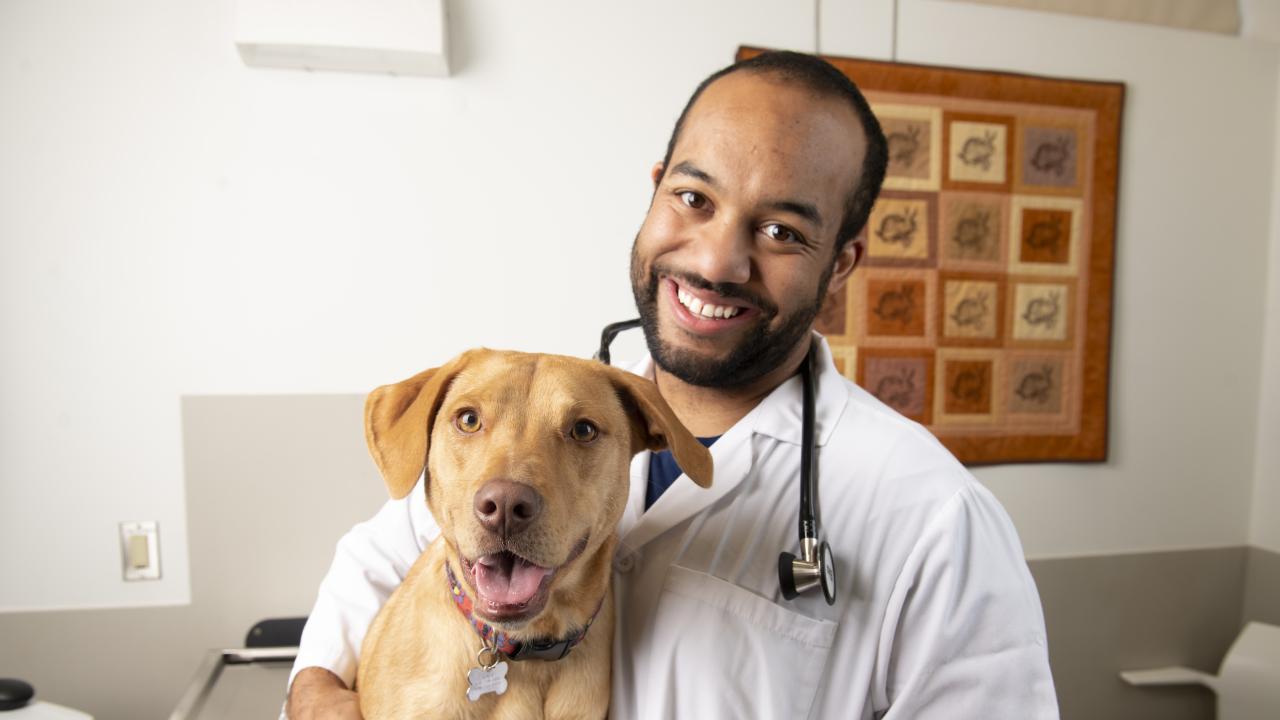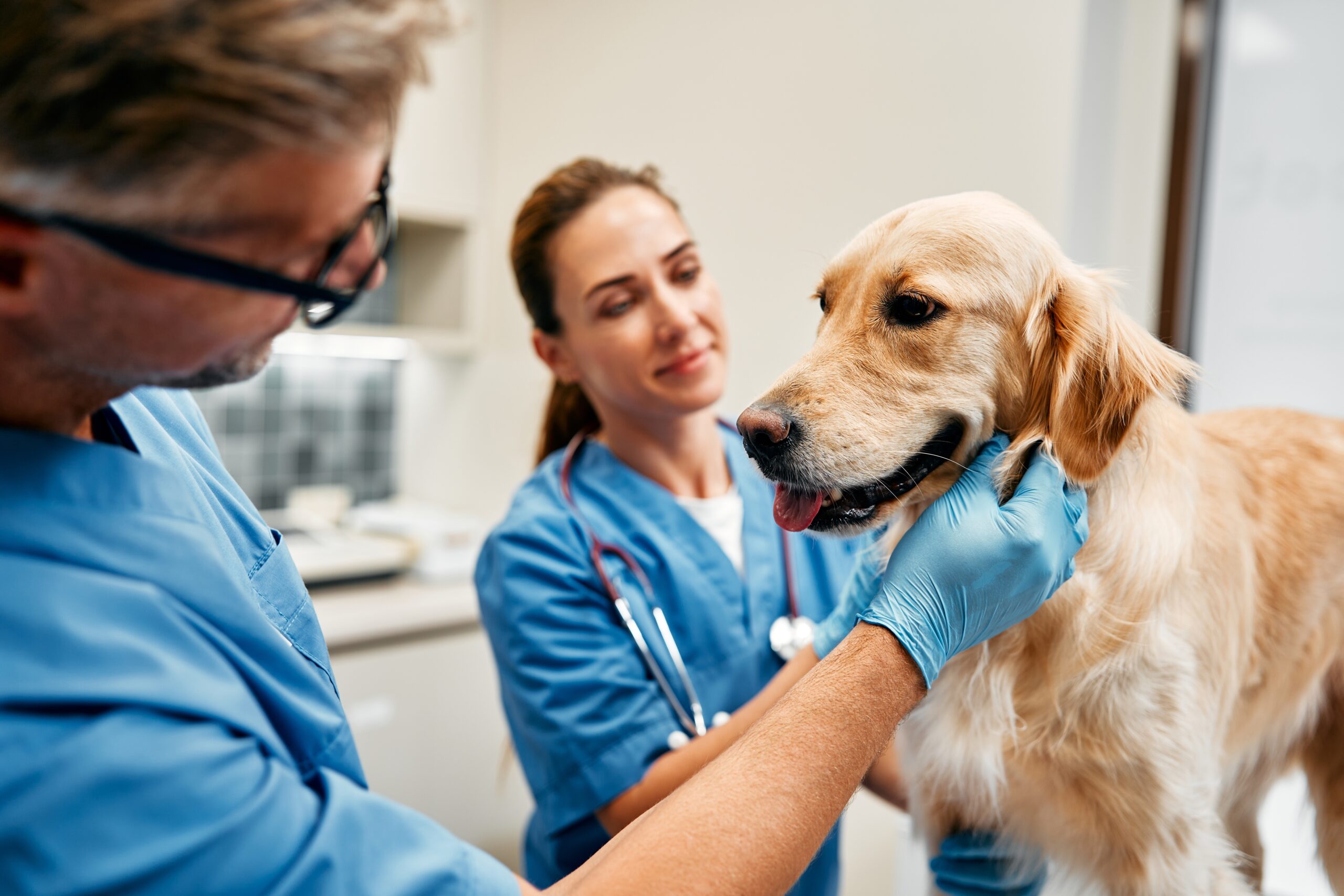What to expect before your pet’s Pet Cancer Surgery
Wiki Article
Recognizing the Role of a Vet Oncologist in Your Family pet's Cancer Care
A vet oncologist concentrates on treating and identifying cancer in animals. Their proficiency is critical for creating customized therapy strategies that deal with the special needs of each family pet. Early diagnosis can considerably impact outcomes, making their function a lot more essential. Comprehending the numerous treatment alternatives and just how these professionals collaborate with primary veterinarians is essential. What methods do they use to enhance your pet's high quality of life during this difficult time?
What Is a Vet Oncologist?
A veterinary oncologist is a customized veterinarian that concentrates on identifying and dealing with cancer cells in animals. These experts possess innovative training in both veterinary medicine and oncology, enabling them to recognize the intricacies of malignant conditions in animals. Their experience allows them to perform a range of diagnostic procedures, consisting of imaging techniques and research laboratory examinations, to properly identify different sorts of cancers in pets.In addition to medical diagnosis, vet oncologists create tailored therapy plans, which might include surgery, radiation treatment, radiation therapy, or palliative treatment. They work very closely with family pet owners to explain treatment choices and prospective outcomes, making sure that family members make educated decisions concerning their animals' care. Veterinary oncologists typically work together with various other vet professionals and basic specialists, producing a complete method to pet dog health and wellness. By concentrating on cancer care, they play an essential role in boosting the quality of life for pets diagnosed with hatreds.
The Importance of Early Diagnosis and Treatment
Early medical diagnosis and treatment of cancer in pet dogs significantly boost the opportunities of effective results and improved quality of life. Vet oncologists can apply targeted treatments that may reduce disease development and minimize symptoms when cancer is recognized in its early phases. This proactive technique allows for far better administration of the condition, potentially bring about longer survival times and improved convenience for the pet.In addition, early discovery often indicates that treatment alternatives may be less intrusive and more efficient, lowering the overall worry on both the pet and its owner. Regular veterinary check-ups and recognition of subtle behavioral changes are vital, as they can facilitate prompt diagnoses. Owners need to remain cautious and consult their vet at the very first indicator of concern. Board Certified Veterinary Oncologist. Inevitably, an early diagnosis empowers pet proprietors to make enlightened decisions regarding their family pet's treatment, substantially influencing the overall journey through cancer management
Treatment Choices Used by Veterinary Oncologists
When confronted with a cancer diagnosis, pet owners can explore a variety of therapy alternatives provided by veterinary oncologists that are customized to the certain requirements of their pets. These experts commonly supply a combination of surgical treatment, radiation treatment, radiation treatment, and immunotherapy. Surgical intervention may intend to get rid of lumps or influenced tissues, while chemotherapy makes use of drugs to eliminate and target cancer cells, commonly administered in cycles.Radiation therapy concentrates on using high-energy rays to diminish growths and relieve pain. Immunotherapy, a more recent innovation, takes advantage of the animal's immune system to battle cancer more effectively. Additional encouraging therapies, such as discomfort monitoring, dietary support, and palliative care, are also crucial parts of a complete therapy strategy. By reviewing each instance separately, vet oncologists assure that the selected treatment straightens with the pet dog's overall health and cancer kind, optimizing the chances of a favorable end result.
The Collaborative Strategy: Dealing With Your Key Vet
Collaboration in between primary veterinarians and veterinary oncologists is essential for giving comprehensive like pets detected with cancer. This partnership ensures a comprehensive method to therapy, combining the specialized understanding of oncologists with the recurring treatment supplied by main vets. With each other, they analyze the pet's health, develop customized treatment strategies, and keep an eye on the pet dog's progress throughout the cancer cells journey.Primary veterinarians commonly act as the preliminary point of contact, identifying possible indications of cancer and referring patients to oncologists for specialized diagnostics and therapy choices. Adhering to the oncologist's referrals, the main veterinarian plays a key duty in handling the pet's total health, consisting of discomfort administration and helpful care.
Effective communication between these experts promotes a unified method, enabling for prompt interventions and adjustments to therapy as needed. This joint strategy inevitably improves the high quality of care and support for pets and their owners throughout a tough time.


Sustaining Your Pet Dog With Cancer Care
Sustaining a family pet through cancer cells treatment calls for a complete understanding of the physical and psychological difficulties dealt with by both the animal and its owner. Caregivers have to listen to the animal's transforming demands, which might consist of taking care of discomfort, readjusting diets, and monitoring negative effects from therapies. Offering a comfortable, trouble-free atmosphere is necessary for the pet's well-being.Emotional support website link is equally important; owners need to seek to stay positive and engaged while recognizing their own feelings of stress and anxiety and sadness. Developing an assistance network, consisting of veterinarians, household, and good friends, can minimize some worries.
In addition, pet dog owners ought to enlighten themselves concerning the particular sort of cancer cells and treatment alternatives available, cultivating educated discussions with vet click for info oncologists. Inevitably, a caring approach, integrated with aggressive care and assistance, can enhance the family pet's lifestyle throughout this challenging journey.
Often Asked Questions
Just how Do I Choose the Right Vet Oncologist for My Family pet?
Picking the appropriate veterinary oncologist involves researching qualifications, seeking referrals, evaluating experience with specific cancers, gauging interaction styles, and visiting clinics to ensure a comfortable setting for both the animal and owner throughout treatment.What Should I Anticipate During the First Visit?
During the initial appointment, the pet proprietor can anticipate an extensive exam, conversation of clinical background, analysis tests, and a therapy plan overview. The vet will certainly deal with concerns and provide guidance for this contact form recurring treatment.Exist Any Type Of Expenses Associated With a Vet Oncologist's Providers?
Expenses connected with a veterinary oncologist's solutions can differ substantially based upon location, therapy intricacy, and needed diagnostics. Veterinary Oncology Services. Animal owners need to expect expenses for appointments, examinations, and prospective ongoing therapy plans tailored to their animals' demands
Can My Animal Still Get Routine Veterinary Treatment While Seeing an Oncologist?
Animals can receive normal veterinary treatment while seeing an oncologist. Coordinating therapies warranties detailed health and wellness management. Regular examinations enhance specialized cancer cells treatment, permitting holistic surveillance of the pet's total wellness and dealing with other health problems.What Resources Are Offered for Pet Owners Throughout Their Pet dog's Cancer Trip?
Different resources are available for family pet owners steering their family pet's cancer trip, including support system, on the internet discussion forums, educational internet sites, and economic help programs, all aimed at giving support, emotional assistance, and useful details during this difficult time.A veterinary oncologist is a customized veterinarian that focuses on treating and diagnosing cancer in family pets. They function very closely with family pet proprietors to discuss therapy alternatives and potential results, ensuring that households make informed choices concerning their animals' treatment. When faced with a cancer diagnosis, pet dog proprietors can explore a range of therapy options given by vet oncologists that are tailored to the particular requirements of their pets. Collaboration between key vets and veterinary oncologists is important for supplying considerable treatment to pet dogs identified with cancer cells. In addition, pet proprietors ought to enlighten themselves about the particular kind of cancer and treatment options offered, fostering notified discussions with veterinary oncologists.
Report this wiki page